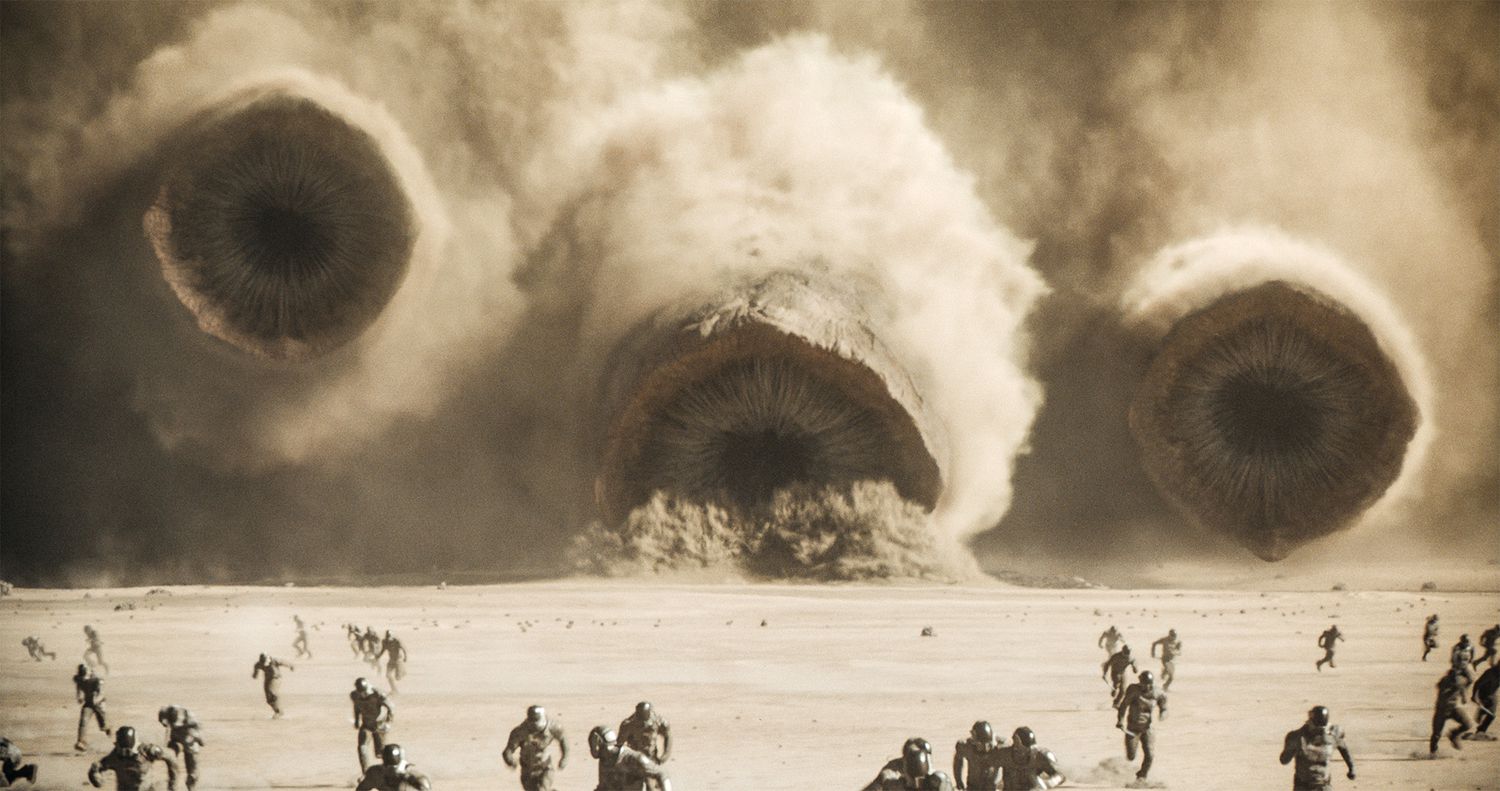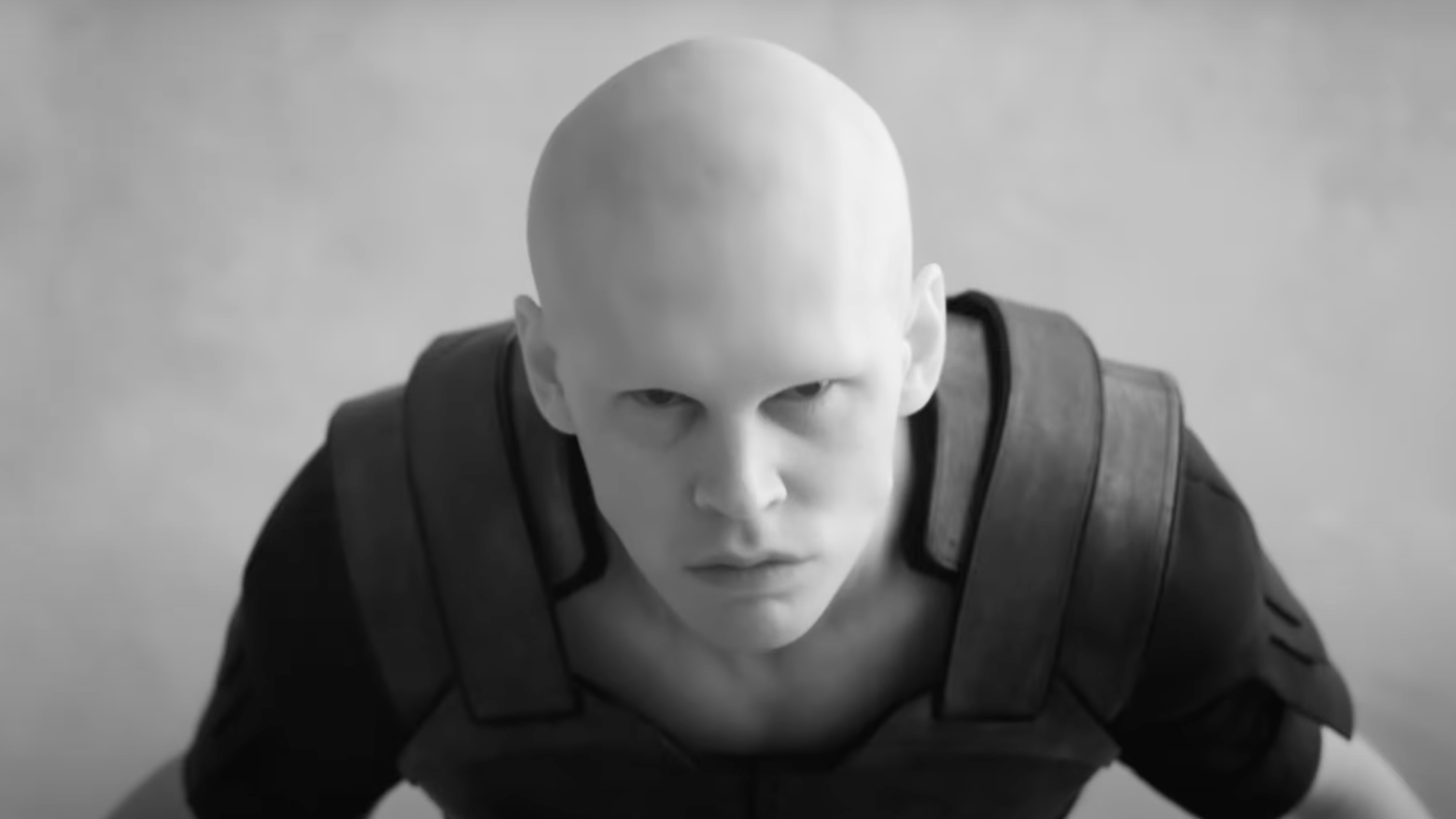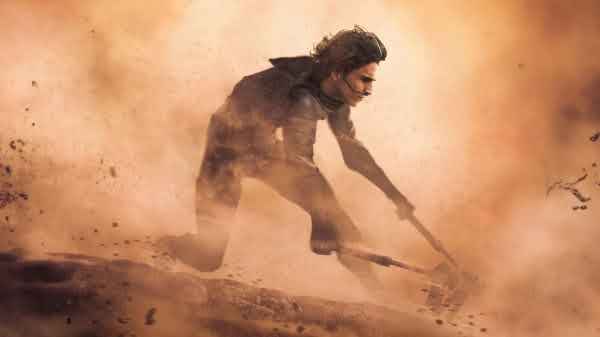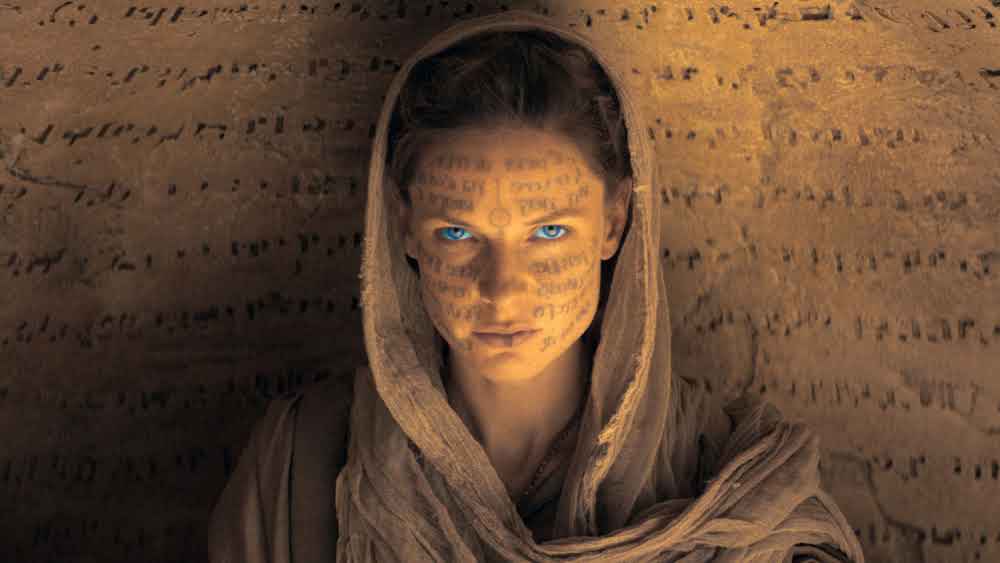Whatever anyone has felt about the particulars of Denis Villeneuve’s two Dune adaptations, the films have confirmed one thing we can all agree on: Villeneuve has established himself as a modern master of spectacle. When you walk into that cinema to see a Dune movie, you expect the sound to rattle your soul, the visuals to dilate your pupils, and the score to lift you onto the surface of an alien planet, where it deposits you knee deep into the sand that covers the surface. Just watch out for subterranean menaces with rows and rows of sharp teeth.
What has never been precisely clear, and is no more so after Dune: Part Two, is whether Villeneuve just excels at documenting the physical details of Frank Herbert’s text, or whether he can truly bring its characters and the stakes of their conflicts into our hearts and minds. Part of this problem lies in the text itself, which originated as a single 1965 novel following the rise of Paul Atreides, but quickly became a series with five proper sequels in the next 20 years, before switching to prequels.
Herbert might not have known he’d have the popular support to see his vision through to completion when he wrote the original, but Villeneuve could not have made his films without the awareness of the future instalments in the narrative and roles for characters that have little to do in his two movies. So instead of expecting a sense of completion at the end of Dune: Part Two following the decidedly unresolved first half, fans should expect just another ellipses.
Does this reduce the sensory awe elicited by Dune: Part Two, one iota? It does not.
The story picks up more or less exactly where the original Dune left off, with Paul (Timothee Chalamet) and his mother Jessica (Rebecca Ferguson) traveling to safety among the native Fremen of Arrakis, who are led by true believer Stilgar (Javier Bardem). They’re carrying with them the corpse of the Fremen Paul has defeated in a duel, one of several aspects of a prophecy Paul has started to bring to fruition, suggesting that he is the chosen one – Lisan al Gaib – who will lead the Fremen people to regain control of their planet from the latest of its series of off-world oppressors, the Harkonnen. Some Fremen, such as Paul’s love interest Chani (Zendaya), believe he’s just a man, albeit a very earnest and courageous one. There’s additional evidence of this truth, such as the fact that Jessica is a member of the Bene Gesserit, an order of women with great powers of mind control, who have planted the Lisan al Gaib myth as a way of controlling the Fremen.
The Harkonnen, a people with alabaster skin and no body hair, are trying to wipe out the Fremen since the Fremen are trying to interfere with their mining of the planet’s rich spice resources. They’ve just wiped out House Atreides, who had been the caretakers of this planet, and now they want to finish the job of any more obstacles to further enriching themselves and securing their place within the empire. Baron Vladimir Harkonnen (Stellan Skarsgard) and his trusted lieutenant Rabban (Dave Bautista) are still the faces of this evil menace, but joining them may be the most ruthless, and youngest, of them: Vladimir’s nephew Feyd-Rautha (Austin Butler), a psychopath who looks like the most murderous hairless mole you’ve ever met.
The man who recently earned an Oscar nomination for his portrayal of Elvis Presley is an improbably perfect embodiment of this demon, and it’s just the latest example of Villeneuve’s gift – or at least the gift of his casting director – for finding performers who can give these characters an epic scope. Extreme close-ups are a part of Villeneuve’s extensive bag of tricks, and in some sense they belie the vast desert landscapes that are his core aesthetic. But what is accomplished through these close-ups of some of the most interesting faces in Hollywood – Chalamet, Zendaya, Ferguson – is to make them into icons in this grandest of milieus. Other new additions to the cast, such as Christopher Walken as the emperor and Florence Pugh as his daughter, become instantly iconic, even if their plot functions are not always clear. And if you think Villeneuve cast Walken for a larf, you might not understand how essentially humourless the director is. Villeneuve doesn’t have a sense of humour, and his Dune movies don’t need one. (Though some of Bardem’s line deliveries are indeed comic gold, which is about the only time these movies go for anything resembling a laugh.)
Villeneuve’s epic pallette is most appreciable in a handful of thrilling set pieces. The scene where the Fremen are trying to take down a massive spice miner, which is similar to the rebels taking down the AT-AT in The Empire Strikes Back, is a whirlwind of grinding gears, laser blasts and contagious adrenaline. But there may be no more breathtaking moment than when Paul – and this is no spoiler – finally mounts a sandworm, as being able to ride these worms like a horse is something that only Fremen should be able to do. As a close-up of his crouched knee turns into standing on two feet, Hans Zimmer finds new impossible instruments to reach a triumphant crescendo on the score, and it’s so overwhelming that it might even prompt “spectacle tears” in a viewer fully wrapped up in this vision.
As happened in the first Dune, though, the collective impact dissipates over the nearly three-hour running time. This is traceable to the intangible that has eluded Villeneuve, which is the sense of what this all means. A chosen one narrative is one of the most familiar storytelling templates we’ve seen, even if it might have been more fresh when Herbert first wrote it. As Paul continues to tick off various elements of the prophecy, and this is acknowledged by Stilgar and the other Fremen, we can’t help but notice that the sheer accumulation of these events has rendered them minorly comical. The fifth or sixth time Stilgar says “as written” as he gasps at one of Paul’s feats, you almost get the sense that Bardem understands there is something midlly silly about it – as he is already the only one who’s injecting any humour here.
The question really is, how many points do you deduct for the film’s failure to penetrate emotionally or intellectually as much as it does physically? For this critic, the answer is “not many.” When a film can achieve almost a perfect score even when parts of it are inarguably dramatically flat, that just shows you how staggering the overall level of achievement is here.
Dune: Part Two is currently playing in cinemas.



